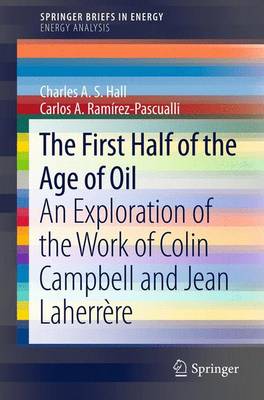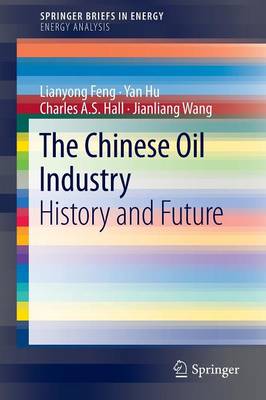Springerbriefs in Energy
2 total works
The First Half of the Age of Oil
by Charles A S Hall and Carlos A Ramirez-Pascualli
According to the conventional wisdom, we live in a post-industrial information age. This book, however, paints a different picture: We live in the age of oil. Petroleum fuels and feedstocks are responsible for much of what we take for granted in modern society, from chemical products such as fertilizer and plastics, to the energy that moves people and goods in a global economy. Oil is a nearly perfect fuel: Energy dense, safe to store, easy to transport, and mostly environmentally benign. Most importantly, oil has been cheap and abundant during the past 150 years. In 1998, two respected geologists, Colin Campbell and Jean Laherrere, published a detailed article announcing that the "end of cheap oil" would happen before 2010, which meant that the world would face a peak, or at least a plateau, in global daily oil production in the first decade of the new millennium. Today, two billion people under the age of 14 have lived the majority of their lives past the point when this century-long growth in oil supplies came to an end, which also marks the end of the first half of the age of oil. This transition has ushered in a new reality of high oil prices, stagnating oil supplies, and sluggish economies. In this book, a leading authority on energy explores the contributions and continuing legacy of Colin Campbell and Jean Laherrere, the two geologists who modified the terms of the debate about oil. The book provides a unique perspective and state-of-the-art overview of today's energy reality and its enormous economic and social implications.
- Covers a topic that eclipses climate change as the most important but least understood challenge for contemporary society
- Explores the works of Colin Campbell and Jean Laherrere, the leading authorities in the field of Peak Oil, authors of "The End of Cheap Oil" (Scientific American, 1998), and founding members of the Association for the Study of Peak Oil & Gas
- Addresses a broad audience of scientists, engineers, and economists in a format that is accessible to the general public
- Provides a complete overview of the basic geological, chemical, physical, economic and historical concepts that every oil consumer should understand
- Presents the latest information on oil production, reserves, discoveries, prices, and fields in easy-to-understand graphs and plots
The Chinese Oil Industry
by Lianyong Feng, Yan Hu, Charles A S Hall, and Jianliang Wang
The Chinese Oil Industry: History and Future presents a wealth of tables and figures with new data on Chinese fossil fuel production and consumption, together with a peak oil model to forecast future trends in energy supply and demand. Energy experts in China and the United States provide you with a unique overview of the entire Chinese oil industry. The authors discuss trends in production and consumption of global significance through to the middle of the 21st century, including the energy returned on energy invested (EROI) for China’s oil and gas.
The role of oil in the industrialization of China is described as are four phases in the history of the Chinese oil industry. Detailed coverage of resources and exploration, pipeline development, refining and marketing, petroleum and natural gas pricing policies, and international cooperation is followed by consideration of conservation, renewable energy, and environmental impact. The authors also address the importance of coal and the probable future of coal production.
- Offers a comprehensive view of the Chinese oil industry
- Presents new and previously unpublished data
- Covers history and future trends in production and consumption
- Introduces a new peak oil model for China
- Discusses EROI trend of oil and natural gas and its consequences for the Chinese economy
- Written from an objective viewpoint by leading energy experts

